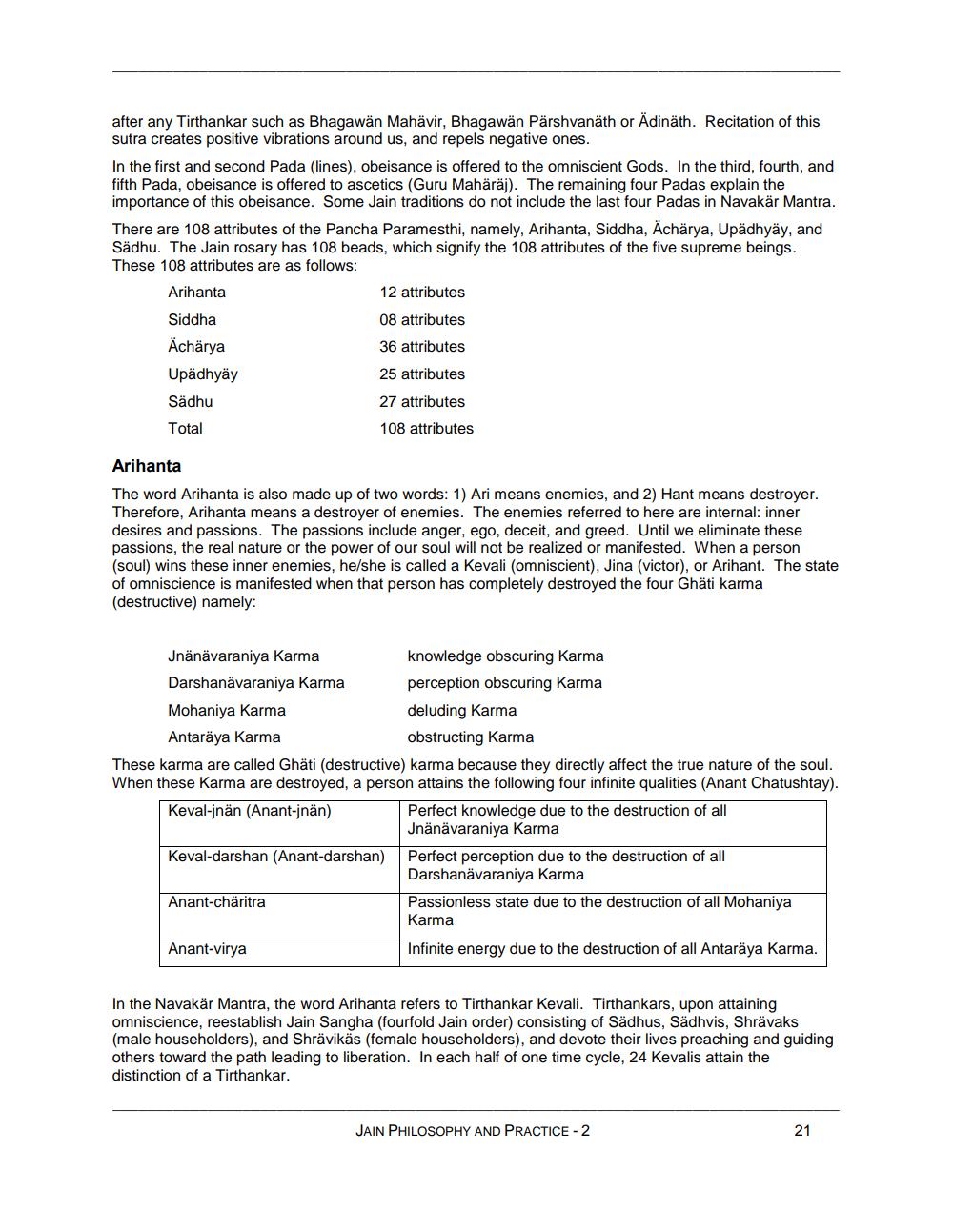________________
after any Tirthankar such as Bhagawan Mahävir, Bhagawan Pärshvanath or Adinäth. Recitation of this sutra creates positive vibrations around us, and repels negative ones. In the first and second Pada (lines), obeisance is offered to the omniscient Gods. In the third, fourth, and fifth Pada, obeisance is offered to ascetics (Guru Mahäräj). The remaining four Padas explain the importance of this obeisance. Some Jain traditions do not include the last four Padas in Navakär Mantra There are 108 attributes of the Pancha Paramesthi, namely, Arihanta, Siddha, Acharya, Upadhyay, and Sädhu. The Jain rosary has 108 beads, which signify the 108 attributes of the five supreme beings. These 108 attributes are as follows: Arihanta
12 attributes Siddha
08 attributes Ächärya
36 attributes Upadhyay
25 attributes Sädhu
27 attributes Total
108 attributes
Arihanta
The word Arihanta is also made up of two words: 1) Ari means enemies, and 2) Hant means destroyer. Therefore, Arihanta means a destroyer of enemies. The enemies referred to here are internal: inner desires and passions. The passions include anger, ego, deceit, and greed. Until we eliminate these passions, the real nature or the power of our soul will not be realized or manifested. When a person (soul) wins these inner enemies, he/she is called a Kevali (omniscient), Jina (victor), or Arihant. The state of omniscience is manifested when that person has completely destroyed the four Ghäti karma (destructive) namely:
Jnänävaraniya Karma knowledge obscuring Karma Darshanävaraniya Karma perception obscuring Karma Mohaniya Karma
deluding Karma Antaraya Karma
obstructing Karma These karma are called Ghäti (destructive) karma because they directly affect the true nature of the soul. When these Karma are destroyed, a person attains the following four infinite qualities (Anant Chatushtay). Keval-jnän (Anant-jnän)
Perfect knowledge due to the destruction of all Jnänävaraniya Karma
Keval-darshan (Anant-darshan)
Perfect perception due to the destruction of all Darshanävaraniya Karma Passionless state due to the destruction of all Mohaniya Karma
Anant-chäritra
Anant-virya
Infinite energy due to the destruction of all Antaraya Karma.
In the Navakär Mantra, the word Arihanta refers to Tirthankar Kevali. Tirthankars, upon attaining omniscience, reestablish Jain Sangha (fourfold Jain order) consisting of Sädhus, Sädhvis, Shrävaks (male householders), and Shrävikäs (female householders), and devote their lives preaching and guiding others toward the path leading to liberation. In each half of one time cycle, 24 Kevalis attain the distinction of a Tirthankar.
JAIN PHILOSOPHY AND PRACTICE -2




